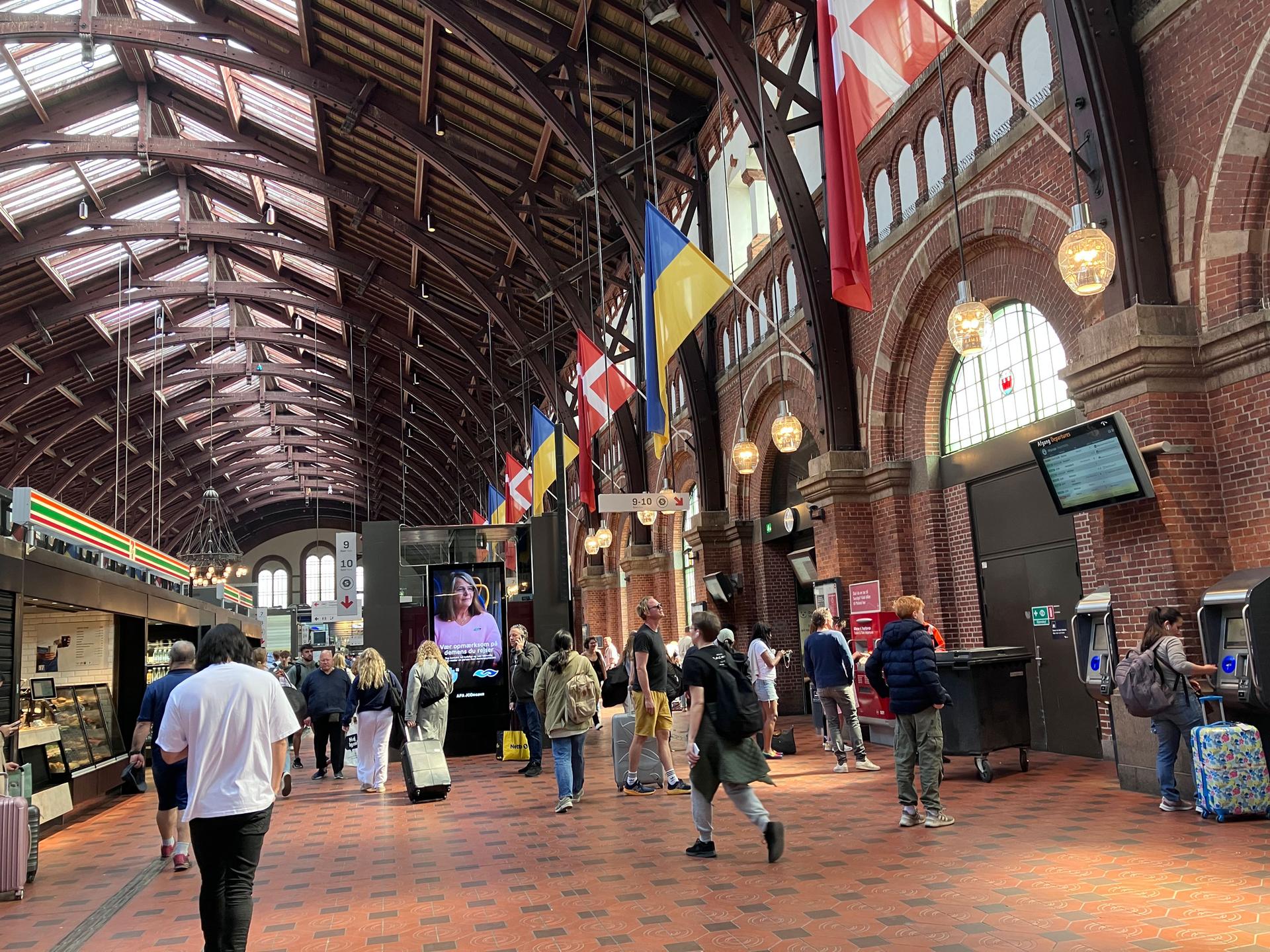On a sunny evening in Hvidovre, a quiet suburb of Copenhagen, Denmark, Tanya Herasymova enjoyed coffee and pastries with about a dozen other Ukrainians who fled the war at home with Russia.
She said she comes regularly with her mom to this makeshift café for refugees, which was organized by the Danish Red Cross inside a cozy, community space in the Filmbyen area.
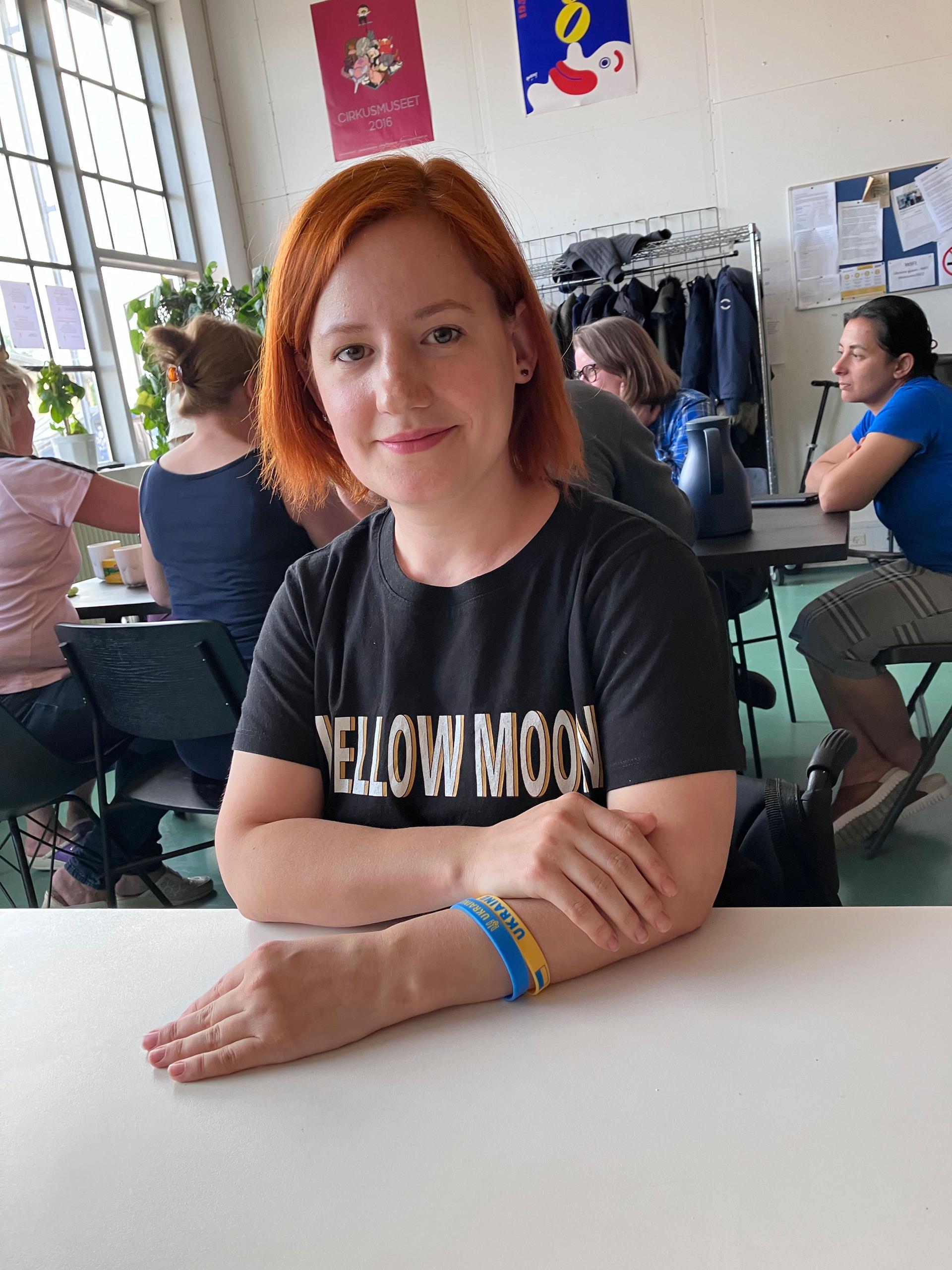
Herasymova, a disability rights advocate who uses a wheelchair, is originally from Kamianske, a city in eastern Ukraine. When the first bombs went off in Ukraine, Herasymova said she and her colleagues with Fight for Right, a disability rights organization, had already made evacuation plans. She traveled by road through Poland and Germany before reaching Denmark in March last year.
She only planned to stay two months. But as the war continues, life has become unpredictable for Herasymova along with the nearly 37,000 Ukrainians who have fled to Denmark since Russia invaded Ukraine 16 months ago.
“It’s changing all the time,” Herasymova said. “Sometimes, it’s so nice to be here, it’s so supportive and we will win [the war]. That’s our big wish. But sometimes, you feel upset with the bureaucracy … and you need to manage, and you need to follow many, many rules.”
In March of 2022, Denmark passed a law known as the Special Act allowing Ukrainians to bypass the asylum system and expedite the process of obtaining a two-year residency permit along with employment and social assistance. But when the law expires in 2024, it remains unclear whether Denmark’s centrist government — with its overall, hard-line stance against immigration — will extend these temporary protections for Ukrainians.
When refugees arrive in Denmark, they typically go through a lengthy process that begins at Center Sandholm, a reception center where asylum-seekers stay for at least the first month, said Niels Svankjær Christiansen, section chief of the Danish Red Cross.
Refugees are then moved into state housing with limited social assistance and undergo multiple interviews, which can last, on average, from six months to two years.
“Ukrainian refugees have had some benefits that we don’t see among other refugee groups, primarily from the fact that they’re allowed to travel directly into Denmark and stay in Denmark, in the Danish municipalities, from the beginning,” Christiansen explained.
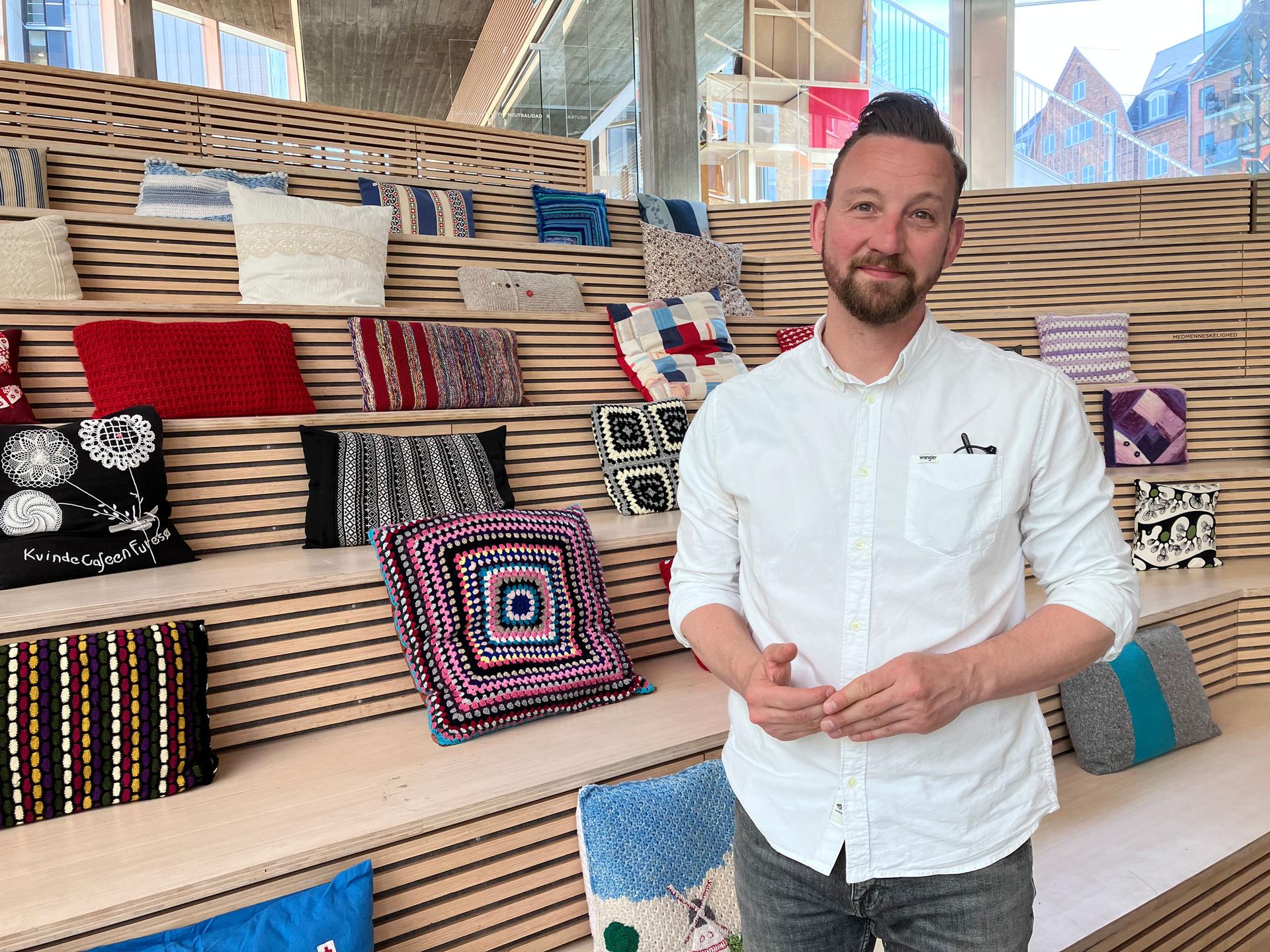
Ukrainian refugees, once registered in one of Denmark’s 98 municipalities, must then take Danish-language classes and actively seek employment in order to receive approximately $800 a month as well as assistance with housing, employment, health care, education and other social services.
According to Denmark’s Ministry of Immigration and Integration, 36,872 Ukrainians have received residency permits under the Special Act, and 28,876 Ukrainians are currently registered with a municipality.
Herasymova is one of 241 Ukrainians registered in Hvidovre as of April.
At first, she said it was hard to adjust to Denmark — especially because of the language barrier.
“In the beginning, it was hard also, because the [Danish] language, it’s so hard to understand. It’s not familiar, not with English, not especially with Ukrainian, and also, people were so kind, trying to understand us.”
Herasymova said she has also gained more fluency in English over the last year. At the cafe, she offered to translate for several other Ukrainian women who were eager to tell their stories.
Like Svitlana Pinonik and her adult daughter, from the Zhytomyr region, who came to the café for the first time.
“All the people are so kind and nice. I really appreciate this because people are so helpful, supportive to me, and [make me] feel safe again. I am really, really thankful,” Pinonik said through translation by Herasymova.
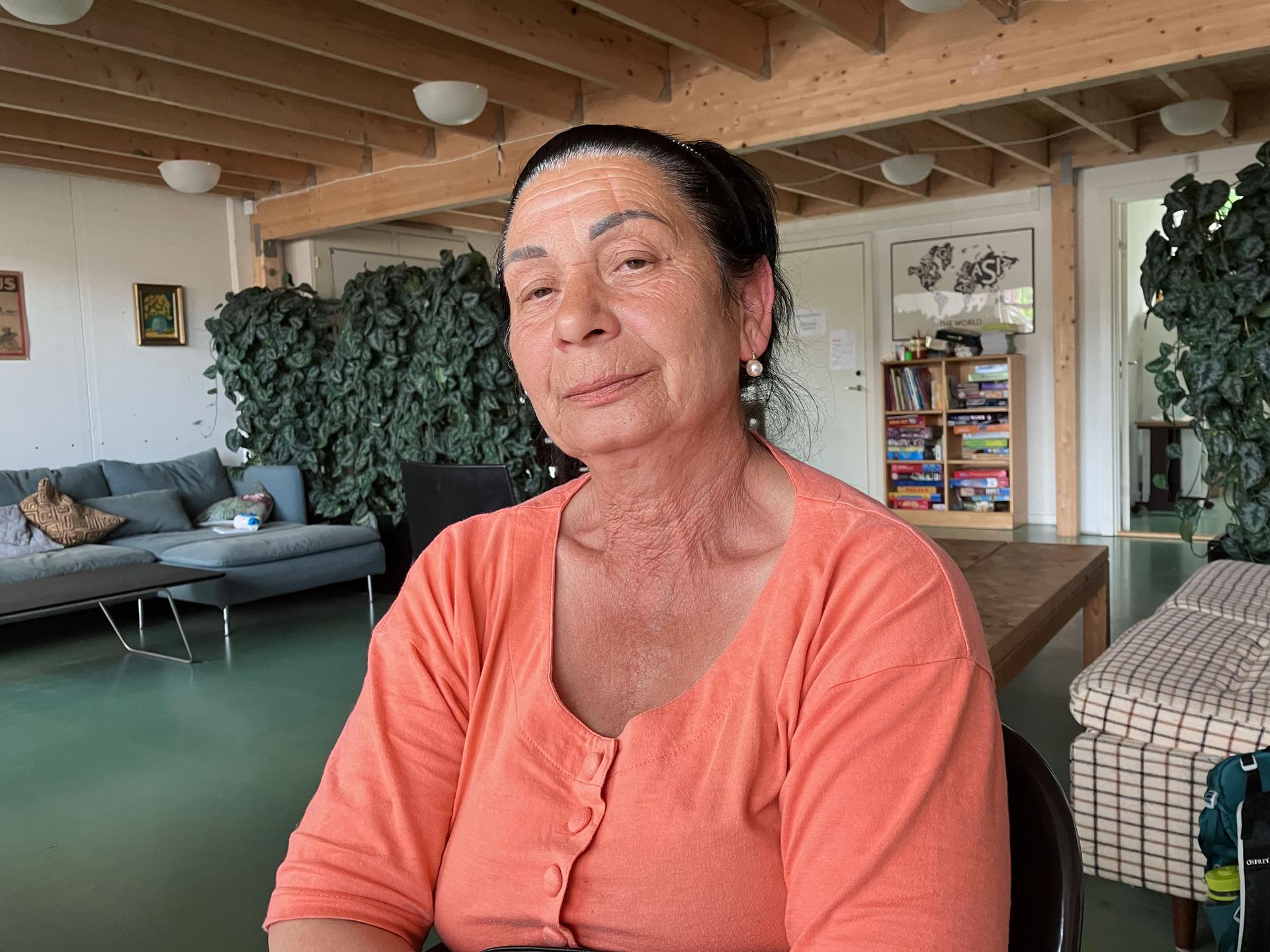
Pinonik just learned that her home had been destroyed in recent attacks.
“I am still in shock,” she said. “I lost my house, and I still don’t know [what will happen] because it’s still very stressful.”
Denmark’s ‘paradigm shift’ in refugee policy
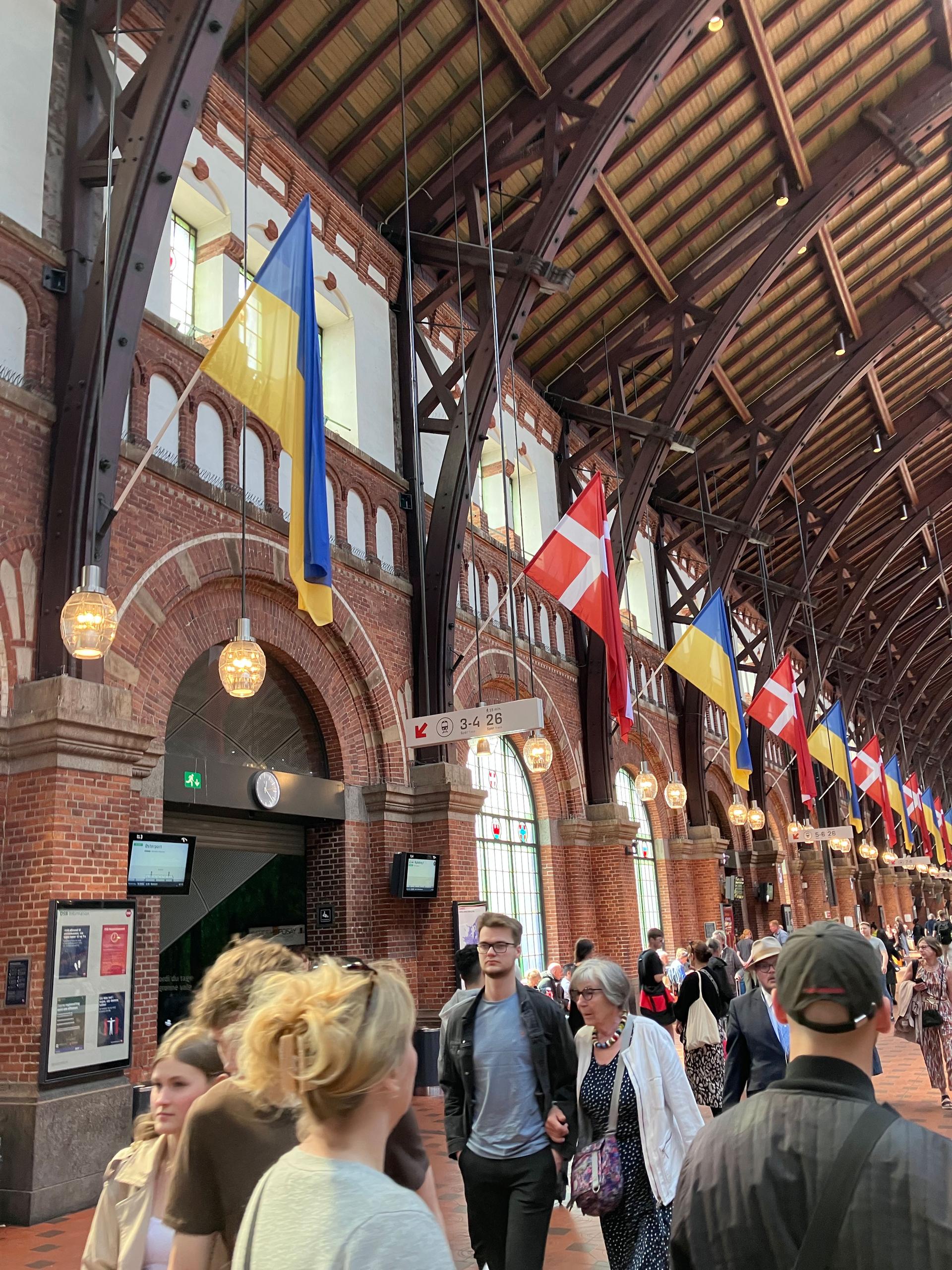
At Copenhagen’s central train station, flags of Ukraine wave proudly next to Denmark’s flags, and there are signs of support for Ukraine nearly everywhere around the capital.
On June 20, Prime Minister Mette Frederiksen announced plans to add $3.2 billion in military, civilian and business aid toward Ukraine in addition to the $1 billion fund pledged in March.
Kasper Sand Kjær, a member of Parliament with the Social Democrat Party, who sits on the immigration and integration committee, said the exceptional reception for Ukrainian refugees was a “no-brainer,” citing Ukraine’s proximity to Denmark as European neighbors amid an active, ongoing war.
He also said that the Special Act will likely get extended after it expires in 2024.
“Europe has a special responsibility when it’s a European country that is being invaded … so that was, I think, the obvious way to handle it,” he said.
Yet, this tension between long-term integration versus repatriation remains a major issue in Denmark. The government continues to stand by its zero-asylum goal and Denmark is the only European country that has revoked the residency permits of Syrian refugees, claiming that it was deemed safe for them to return home.
Many human rights and refugee advocates have condemned the mismatched treatment in Denmark.
“The strange thing about the Special Act for Ukrainians is that they actually don’t have any rights,” said Michala Bendixen with Refugees Welcome Denmark, an advocacy organization that offers free legal advice to refugees and asylum-seekers.
“A refugee has rights according to international legislation. But Ukrainians, they’re not refugees [in Denmark]. Legally speaking, they have this permit only because of their nationality, not because of any risk or danger.”
Bendixen said this “paradigm shift” in refugee policy away from long-term integration and future protection means Denmark is only obliged to give temporary protection under acute danger, and expect them to return when conditions improve even slightly at home.
“You can’t integrate anybody in a few years. It actually takes a long time, maybe 10 years, before people really start to pay back to society,” she said, adding, “The more you make people feel welcome and feel that they are an active part of society, the more successful integration will be.”
But Denmark’s current political climate indicates a hard-line trend in the opposite direction, she said. Neighboring countries like Sweden are following Denmark’s lead when it comes to tightening restrictions on refugees and asylum-seekers, she added.
Finding home in Denmark
Back in the suburb of Hvidovre, Olesia Olinyk, from Kyiv, Ukraine, joined her Danish friend Mona Elgaard on the back deck at her home.
It was a national holiday, so the Olinyk family of four rode their bikes over to the Elgaards’ to enjoy the day off together. When they arrived, Mona Elgaard was in her brightly lit kitchen making coffee while her two daughters, Astrid Elgaard and Kaya Elgaard, hung out with their pet hamster in the adjoining living room and their youngest child, Neel Elgaard, took a nap.
The two mothers met through another Danish Red Cross program that connects Ukrainian and Danish families to encourage friendships. Their families hit it off right away, they said, adding that the two text each other nearly every day.
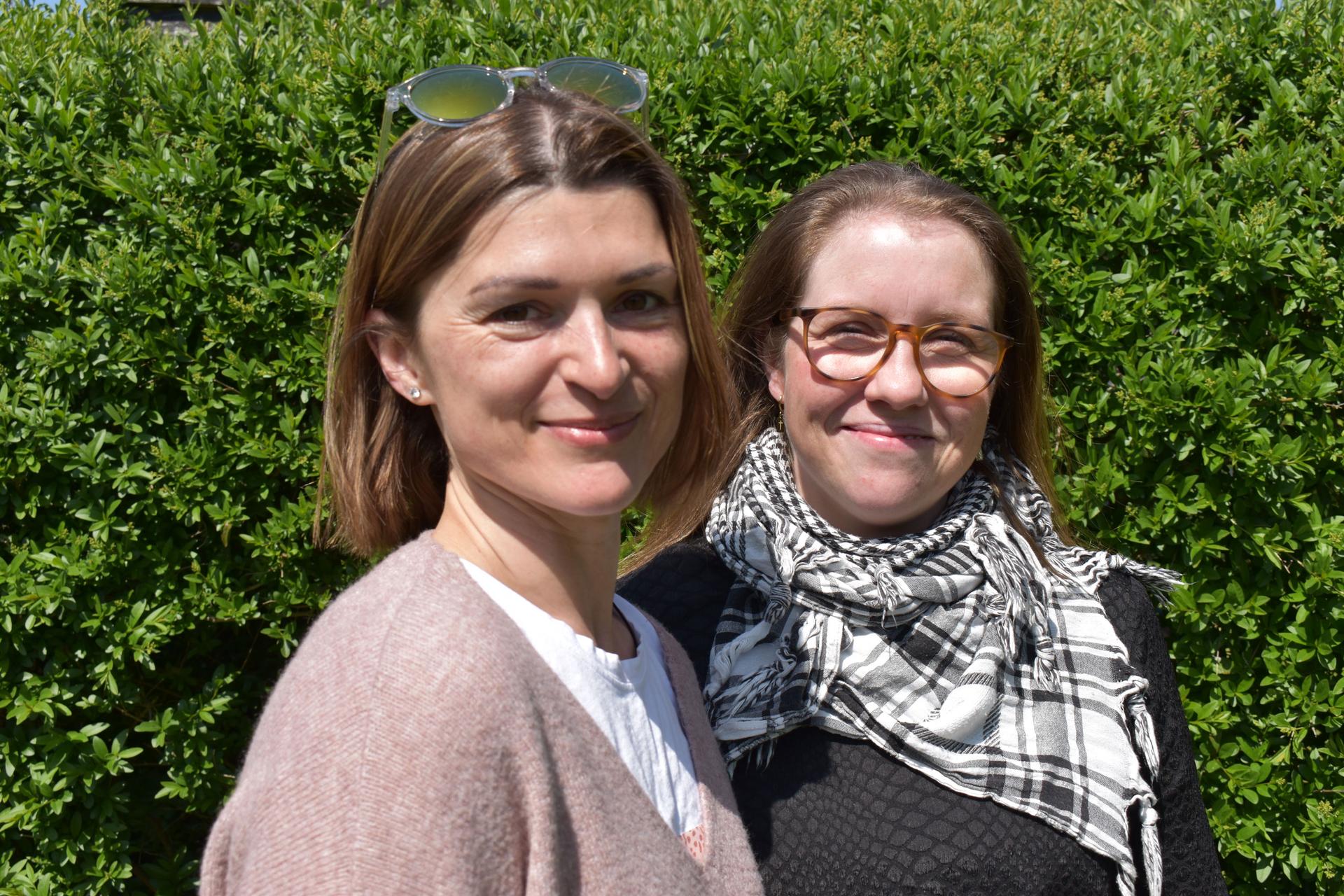
Here on the back deck with the sounds of crowds cheering from the nearby football stadium, Olesia Olinyk told The World that her family made a harrowing escape from Kyiv early on in the war. They fled with her husband, Vitaliy Olinyk, and their son, who is also named Vitaliy Olinyk, and their daughter, Angelina Olinyk.
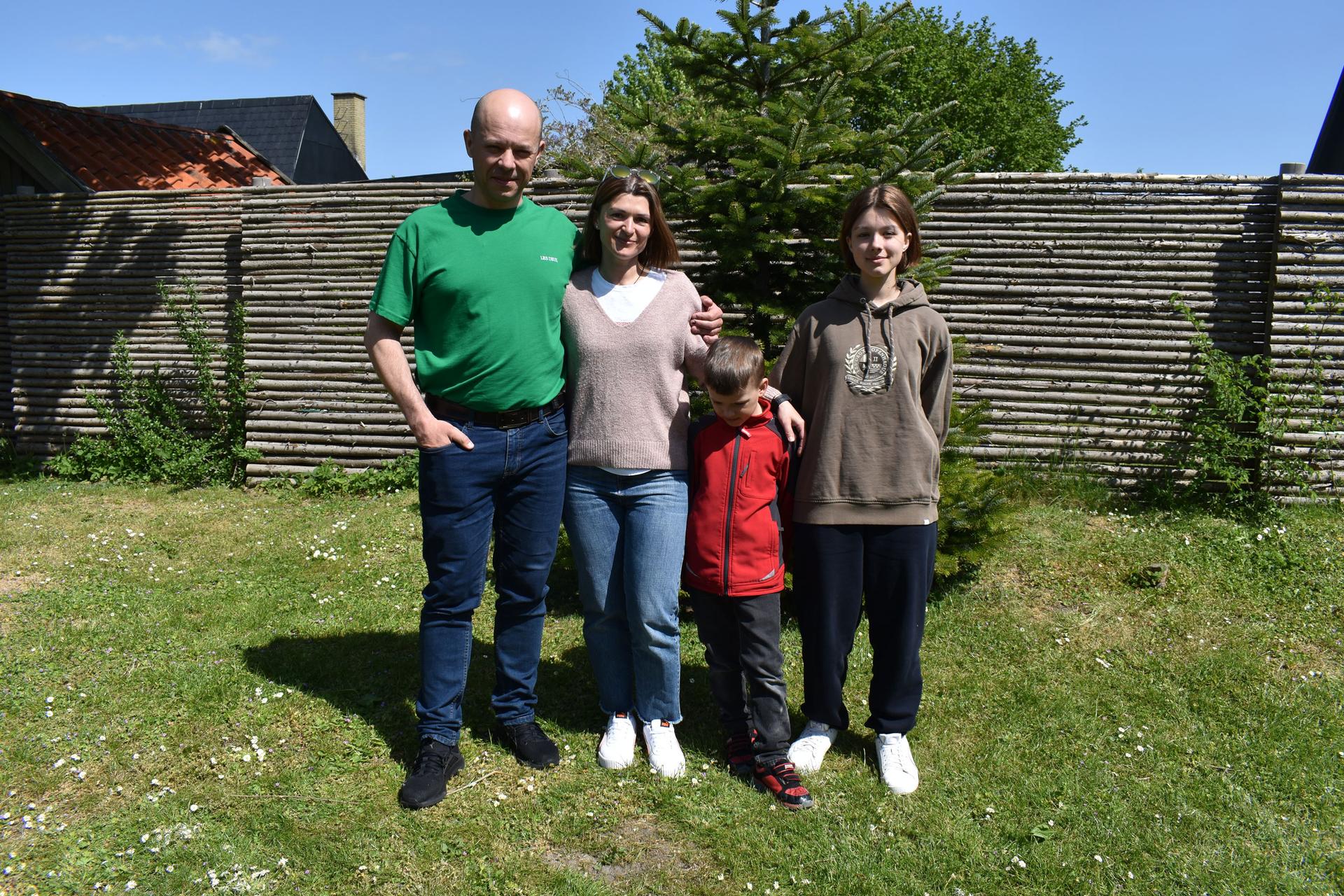
Olesia Olinyk said her husband volunteered briefly for the military, but was given permission to leave the country when they showed them their daughter’s medical papers indicating problems with her blood that needed special medicine. After a brief stay in Poland, she said, the family traveled by land to Denmark, and eventually, registered in Hvidovre.
The couple both managed to find work in Denmark, but securing long-term, affordable housing remains elusive. The Hvidovre municipality helped the couple find a subsidized apartment near the train station, but they have to move out by the end of June because the apartment is too expensive, and the couple doesn’t bring in enough of a joint income.
Olesia Olinyk is trained as an electrical engineer and now works three days a week at a cafeteria; her husband works full time as an engineer for a Scandinavian company.
When Olesia Olinyk spoke to The World in May, she said that her husband had written the city authorities three times asking for a solution so that they could stay in their place. And Mona Elgaard even wrote a letter on the family’s behalf. But they were all told that Olesia Olinyk must also have a full-time job, like her husband, and earn a minimum of about $2,100 per month in order to stay in their apartment.
“It’s just really difficult to find an apartment in Hvidovre because, of course, all the small apartments are difficult to get because people with a lower income will want them,” Mona Elgaard chimed in.
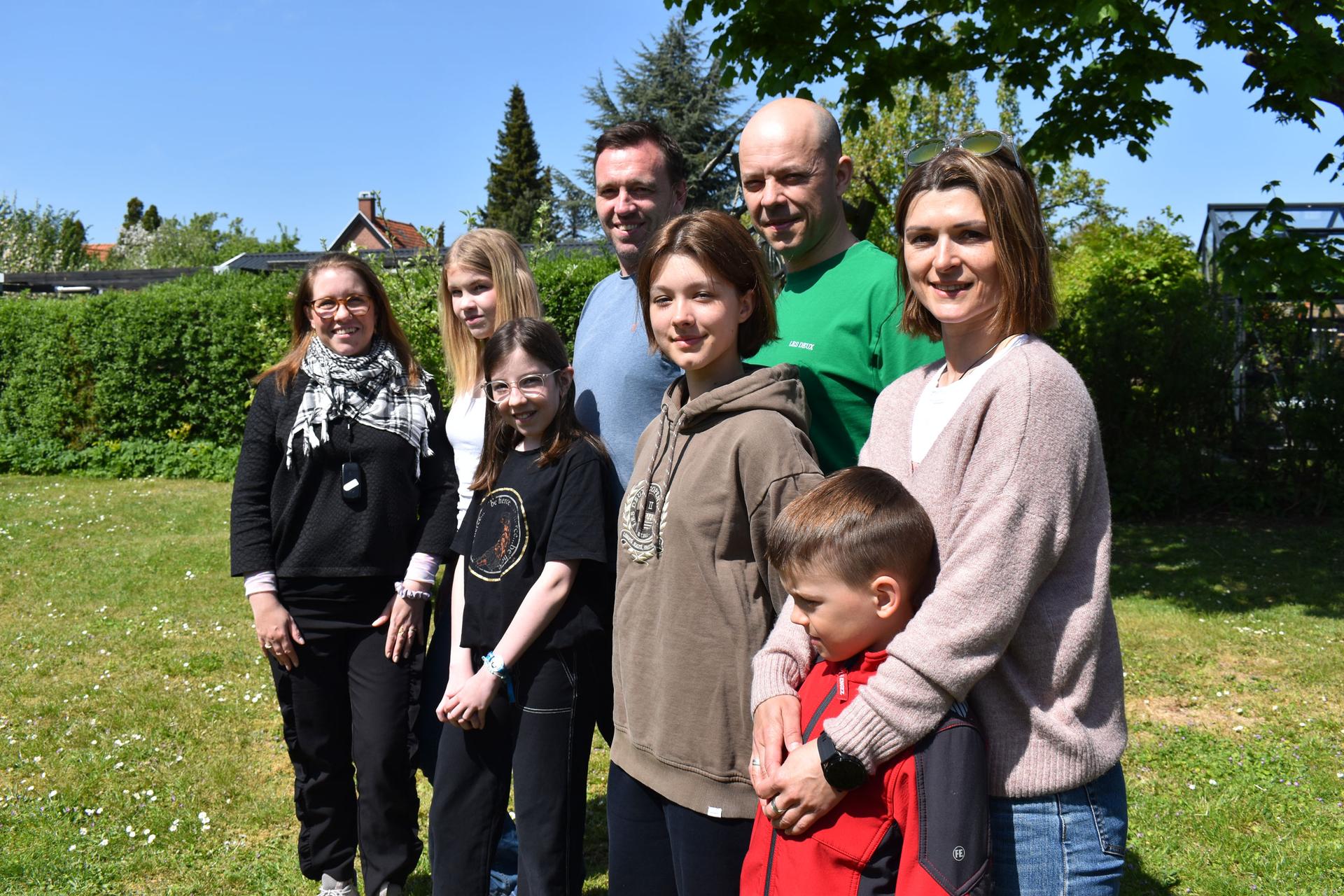
Still, Olessia Olinyk tries to remain hopeful and continues to look for a better-paying job in her field.
“One year ago, it was a bad world, a bad life, but now, we feel, of course, we have a better life,” she said.
With the looming uncertainty of war in Ukraine, Olessia Olinyk said the family can only plan hour by hour, but they intend to stay in Denmark for now so that their children can finish their education.
Angelina Olinyk said that adjusting to a new life in Denmark has been challenging but she loves how Danes are so friendly and smile at her on the streets.
“I have some new relationships, I have some new friends, I know a bit of a new language [and] that is totally something new for me,” she said.
Our coverage reaches millions each week, but only a small fraction of listeners contribute to sustain our program. We still need 224 more people to donate $100 or $10/monthly to unlock our $67,000 match. Will you help us get there today?
